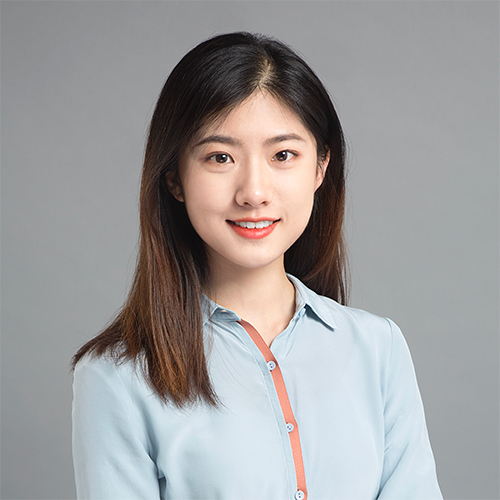Mengxia Liu: Advancing the Next-Generation of Optoelectronic Materials
The School of Engineering & Applied Science is proud to welcome its newest faculty members for the 2022-23 academic year. The large influx of faculty members – 13 so far, with more to be announced soon – marks the rapid growth of the School and investment in the research areas illustrated in the SEAS Strategic Vision.
The latest faculty arrivals are valuable additions to the chemical and environmental, computer science, and electrical engineering departments. Their expertise includes sustainability, artificial intelligence, robotics, quantum computing, cybersecurity, and optoelectronic materials.
Upon their arrival, we asked these new faculty members questions about their work, their motivations, potential collaborations, and much more:

Mengxia Liu, Electrical Engineering
Hometown:
Tianjin, China
Prior academic history:
I received my PhD degree from the Department of Electrical and Computer Engineering at the University of Toronto in 2018, and my bachelor's degree from the Department of Materials Sciences and Engineering at Tianjin University in 2014. Before joining Yale, I was a postdoctoral fellow in the Cavendish Laboratory at the University of Cambridge.
How would you summarize your research?
My research focuses on advancing the next-generation optoelectronic materials for applications in energy, sensing, and information technologies. We develop high-throughput methods to create nanostructures and low-dimensional materials and transform them into electronic devices. Using cutting-edge spectroscopies, we explore the electronic, optical, and spin properties of the materials and devices, and leverage these insights to enable novel device concepts and push device performance to the limit.
What inspired you to choose this field of study?
The electronics industry has made huge progress over the past decades by using a very limited set of materials systems. I believe the discovery of new semiconductors will make a transformative impact on the way we generate and communicate information. This is a challenging but inspiring field that I am so passionate in.
Where do you see the field 10 years from now?
The microelectronics field is moving fast towards miniaturized and compact devices that collect and process data with faster speed and lower energy consumption. The search for new candidates will rely more on the high-throughput simulation and automatic techniques to predict, fabricate and characterize materials. In the next 10 years, I expect to see breakthroughs in the heterogeneous integration of dissimilar materials, for example the integration of novel thin film semiconductors with mature silicon-based electronics, and the commercialization of such devices.
What brought you to Yale?
Yale faculty and students are leading transformative research in microelectronics, applied physics, and chemical engineering, and the Energy Sciences Institute where my lab is located provides an outstanding environment to foster collaboration. I'm so looking forward to learning and building collaborations to continue discovery in research that advances future semiconductors.
What areas outside of the Electrical Engineering Department do you seek to create impactful research collaborations or partnerships?
Advances in microelectronics require interdisciplinary efforts among pioneers in applied physics, chemistry, and nanoscience. I seek to build connections with groups in these areas.
Are there any courses that you look forward to teaching/creating?
I look forward to teaching Electronic Materials, Semiconductor Devices, and creating a new course about nanostructured semiconductors.
What are your interests outside of the lab?
Jogging and painting. To stay healthy and stay creative.
What is the best New Haven Pizza?
Haven't tried any. I'm looking for recommendations.

